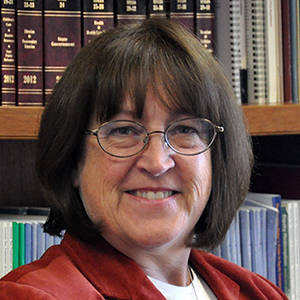 Linda D. Phillips, Esq., an attorney at Denver, Colorado-based Phillips Law Offices LLC, provides counsel for the cooperative community related to their business enterprises. She advises clients on types of business entities and tax issues involved in starting a company. She also assists companies transferring ownership to their employees. Phillips is part of a team of distinguished legal experts working with NCBA CLUSA to organize a brand-new platform for professional collaboration within the cooperative movement—the inaugural Cooperative Professionals Conference.
Linda D. Phillips, Esq., an attorney at Denver, Colorado-based Phillips Law Offices LLC, provides counsel for the cooperative community related to their business enterprises. She advises clients on types of business entities and tax issues involved in starting a company. She also assists companies transferring ownership to their employees. Phillips is part of a team of distinguished legal experts working with NCBA CLUSA to organize a brand-new platform for professional collaboration within the cooperative movement—the inaugural Cooperative Professionals Conference.
The November 6 to 8 conference in Denver, Colorado, will offer networking and continuing education opportunities for attorneys, accountants, CPAs, financial and investment advisors, insurance advisors and legislative staff who work within the cooperative sphere or are interested in expanding services to include co-ops.
A member of the Rocky Mountain Employee Ownership Center Board of Directors, Phillips has helped the organization grow and focus its efforts on employee ownership as a viable alternative to today’s corporate culture. She has written extensively on cooperative law and co-wrote with Jason Wiener, Esq. a chapter on Colorado cooperative law for the legal website co-oplaw.org.
Ahead of the Co-op Professionals Conference, we spoke to Phillips about the challenges and opportunities cooperative law presents, where the new conference is headed, and the value of linking often-isolated professionals who serve co-ops.
NCBA CLUSA: What factors led to the formation of the Cooperative Professionals Conference?
Phillips: Tom Beckett [attorney, Mountain South Business Law] and I met several years ago at an NCBA CLUSA meeting in Seattle and were pleasantly surprised to find each other. We talked about other attorneys across America who were working with non-traditional co-ops, some with little or no assistance from their peers. Then we determined that there are also CPAs who work with co-ops but who may or may not know each other. So we thought it would be great if we could bring folks together who shared a passion for cooperatives and for the cooperative business model.
NCBA CLUSA: Why is this professional network needed in the cooperative sphere?
Phillips: There are legal and accounting issues that are specific to cooperatives, especially non-traditional cooperatives, such as worker co-ops. Being a business lawyer or a CPA who works with LLCs or S-corporations is not sufficient when working with cooperatives. Having a network of colleagues available to ask and answer questions or talk about ideas would be invaluable.
NCBA CLUSA: What shape do you hope the conference takes going forward?
Phillips: We are hoping to attract attorneys and CPAs who may not have worked much with cooperatives but who are interested in learning more about businesses that are formed as cooperatives. In addition, we would like to include law students and CPA students who want to pursue alternative business models. All of these people will have chance to network and learn from professionals currently working with co-ops.
NCBA CLUSA: What specific opportunities and challenges does cooperative law present, and how will this conference address them?
Phillips: Cooperative law and accounting are distinct from general business law and there are statutes, federal regulations and specific provisions of the Internal Revenue Code that will be discussed throughout the conference. We are hoping to facilitate in-depth discussions between professionals with experience in these areas of law and accounting. For example, reading and understanding Subchapter T of the Internal Revenue Code is required for both attorneys and CPAs who work with cooperatives.
NCBA CLUSA: What drew you to cooperative law?
Phillips: I first learned about cooperatives in 1991 while working as a paralegal for the preeminent cooperative attorney James B. Dean. I learned about co-ops as a business model from Jim who later became my business partner when I finished law school. I have been lucky to receive the opportunity through my practice to form and work with several different types of non-traditional cooperatives, and I am passionate about the flexibility of the cooperative business model for many forms of business.


